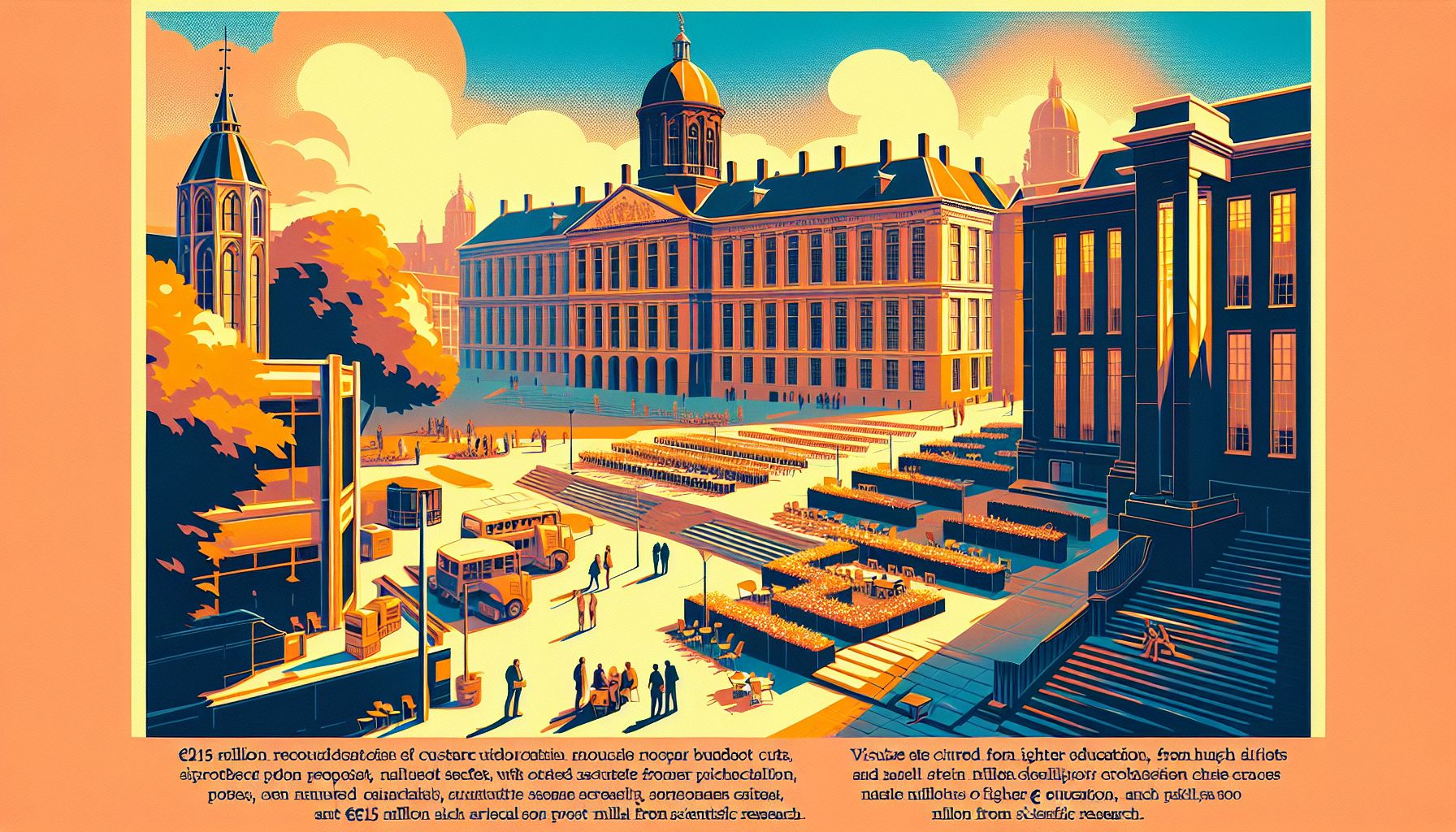Dutch Universities Brace for Severe Budget Cuts

Amsterdam, Friday, 19 July 2024.
Dutch universities are taking preemptive measures as they face substantial budget cuts planned by the new government coalition. With €215 million in cuts to higher education and €150 million annually from scientific research, institutions are canceling construction projects and implementing hiring freezes. University leaders warn of dire consequences for education quality and research capabilities.
Immediate Impact on Academic Institutions
Several universities have already begun to adapt to the impending financial constraints. Groningen University has cancelled plans for a new building, while Radboud University in Nijmegen has taken similar actions. Twente University anticipates a cut of €57 million, and the Vrije Universiteit (VU) in Amsterdam expects to lose €110 million annually. University leaders emphasize that these cuts will result in significant operational challenges, impacting everything from infrastructure to staffing and course offerings[1].
Concerns over Quality and Accessibility
The cuts have sparked widespread concern among academic leaders about the future of Dutch higher education. In a letter to Education Minister Eppo Bruins, university boards warned that the quality and accessibility of academic education and research are at risk. Margrethe Jonkman, chairwoman of VU, noted that such significant reductions could have far-reaching consequences for the university’s ability to contribute to the labor market and innovation[1].
Broader Impact on Dutch Science and Research
The cuts will not only affect higher education but also the broader scientific community in the Netherlands. The European Association of Institutions in Higher Education (EURASHE) has voiced its concern, warning that the budget reductions could jeopardize European cooperation in higher education. The proposed law ‘Balanced Internationalization’ aims to cap the number of international students and increase the use of Dutch as the language of instruction, further limiting the international appeal of Dutch universities[2].
Legal and Political Repercussions
The Universities of the Netherlands (UNL) have threatened legal action against the government, arguing that the cuts violate a 2022 administrative agreement that pledged €650 million annually to universities. The UNL warns that more than 5,000 jobs are at stake, and the quality of education and research will suffer. The far-right Freedom Party (PVV) and the populist Farmer-Citizen Movement (BBB), part of the new coalition, see the cuts as a measure against what they perceive as ‘activist woke culture’ in universities[3].
Voices from the Academic Community
Nivja de Jong, a languages professor at Leiden University, expressed fears that the cuts would severely impair students’ education. De Jong and her colleagues are raising awareness through public talks, highlighting the importance of maintaining robust funding for higher education. Marcel Levi, chairman of the Knowledge Coalition, echoed these concerns, stressing that the budget cuts would cause Dutch science and innovation to fall behind other research-intensive countries[4].
Future Prospects and Strategic Adjustments
While some universities, like Maastricht University, are adopting a ‘wait and see’ approach, others are already making strategic adjustments to cope with the financial strain. Wageningen University, for instance, anticipates losing 10% of its budget and is exploring ways to balance food production, climate, nature, and health research despite the cuts. The future of Dutch higher education and research hinges on the ability of these institutions to adapt and advocate for sustainable funding solutions[1].

